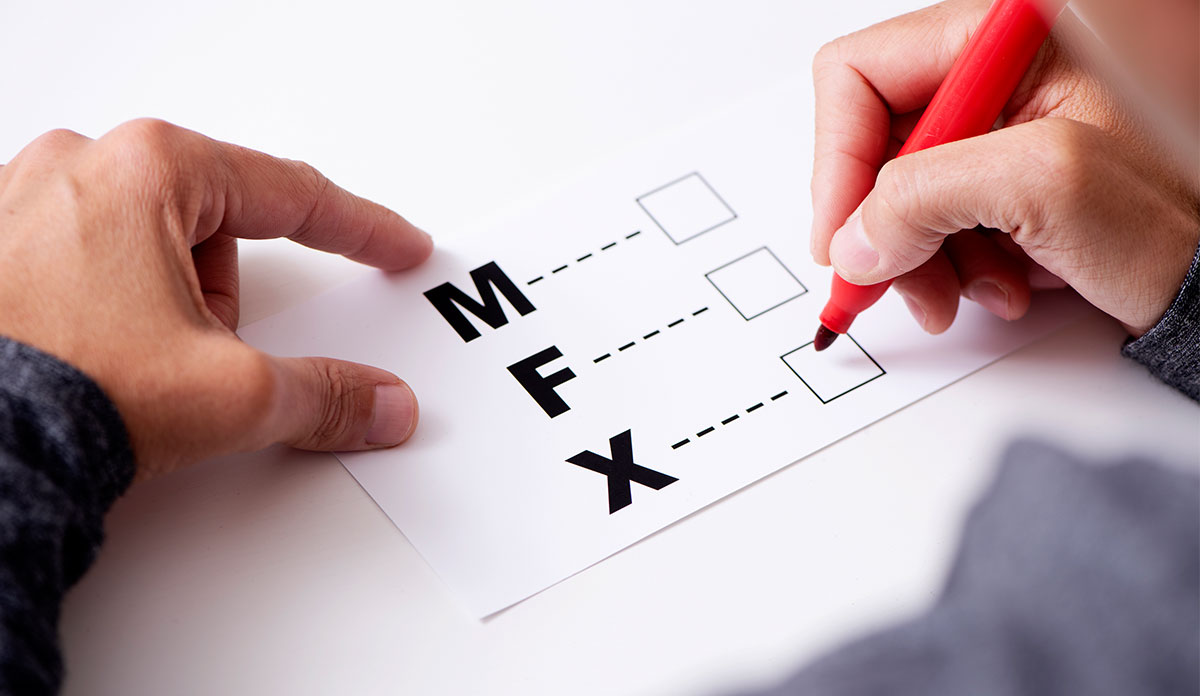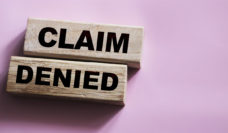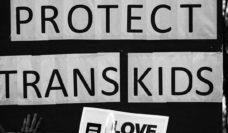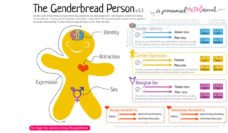I always carry a few essential items, no matter where I am: my cellphone, credit card, keys, and lastly my ID. Identification cards seem inconsequential. It’s that 2” x 3.5” piece of slightly bendable plastic with a less-than-flattering photograph, and height and weight measurements that perhaps aren’t quite accurate. For most people, their ID may be a bit dated, but it correctly reflects who they are. This isn’t true for everyone. For many transgender people – including those who are non-binary – their ID is a daily reminder that society refuses to recognize their identity.
Non-binary refers to people who have a gender identity outside the female-male dichotomy. They may identify and express themselves with varying degrees of femininity, masculinity, both, or neither. Like everyone, non-binary people move through a world that upholds a two-gender society; however, non-binary people face erasure at every turn.
I can be sitting in my doctor’s office staring too long at the only available options to the question: Circle your gender: Male / Female. I can be in a room and hear people refusing to use gender-neutral pronouns such as they/them. Or I can be reading news headlines of state officials claiming there is no such thing as being non-binary.
Non-binary people regularly encounter these invalidations while moving through a society that does not accept their gender identity as “real.” In a 2020 study involving non-binary adolescents, those who disclosed their gender identity described how people would laugh, act confused, or dismiss their identity as “fake.” These invalidations can lead to shame and self-doubt, which take a toll on mental health. It can also be emotionally taxing to constantly correct and educate others about one’s identity.
If society created this gendered dichotomous world, it can also create one that is inclusive of everyone who falls outside those two boxes. Almost 50% of states are moving in this direction by allowing people to list their gender as “X” on their driver’s license, state ID card, or birth certificate, instead of the traditional “M” and “F” markers. For transgender individuals (which include non-binary people), having a correct gender marker on an identification document can be imperative for safety and ease anxiety.
Every state should offer an “X” designation and make the process of changing one’s gender marker easy and accessible.
Currently, 20 states plus Washington DC have the X marker option for drivers licenses, while 14 states and DC grant non-binary adults the ability to change gender markers on their birth certificates. Increased attention on this issue is propelling more states to make changes. In June 2021, New York passed a bill allowing the “X” marker on drivers licenses. And in Oklahoma, the State Health Department issued the state’s first gender neutral birth certificate this past October.
I’m hopeful more states will soon offer a gender neutral option on these documents. However, I’m discouraged by those who make the actual process of changing one’s gender marker opaque, time-consuming, and burdensome. For example, individuals changing their driver’s license gender marker in Utah must file a court order and attend a hearing. For minors, changing the gender on their birth certificate can require signatures from a parent, guardian, or medical or mental health professional. This additional barrier suggests minors need an adult to validate their identity, when in reality children can know their gender as early as 2-3 years old.
Non-binary people exist and their gender identity is real. States can take a small step towards validating gender-diverse people by offering X markers on identification documents and ensuring a process that is not burdensome in paperwork, required signatures, or fees.
Perhaps one day I will live in a world where I’m not required to display my gender on any official document. But until that day arrives, X markers can help people of all genders see themselves reflected in their ID – and know that society recognizes them too.
Photo via Getty Images














